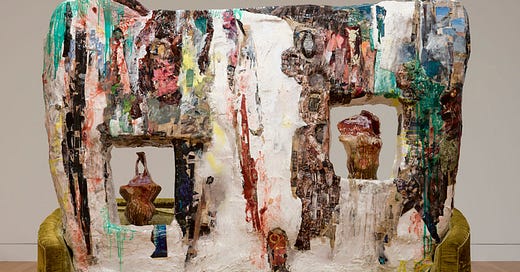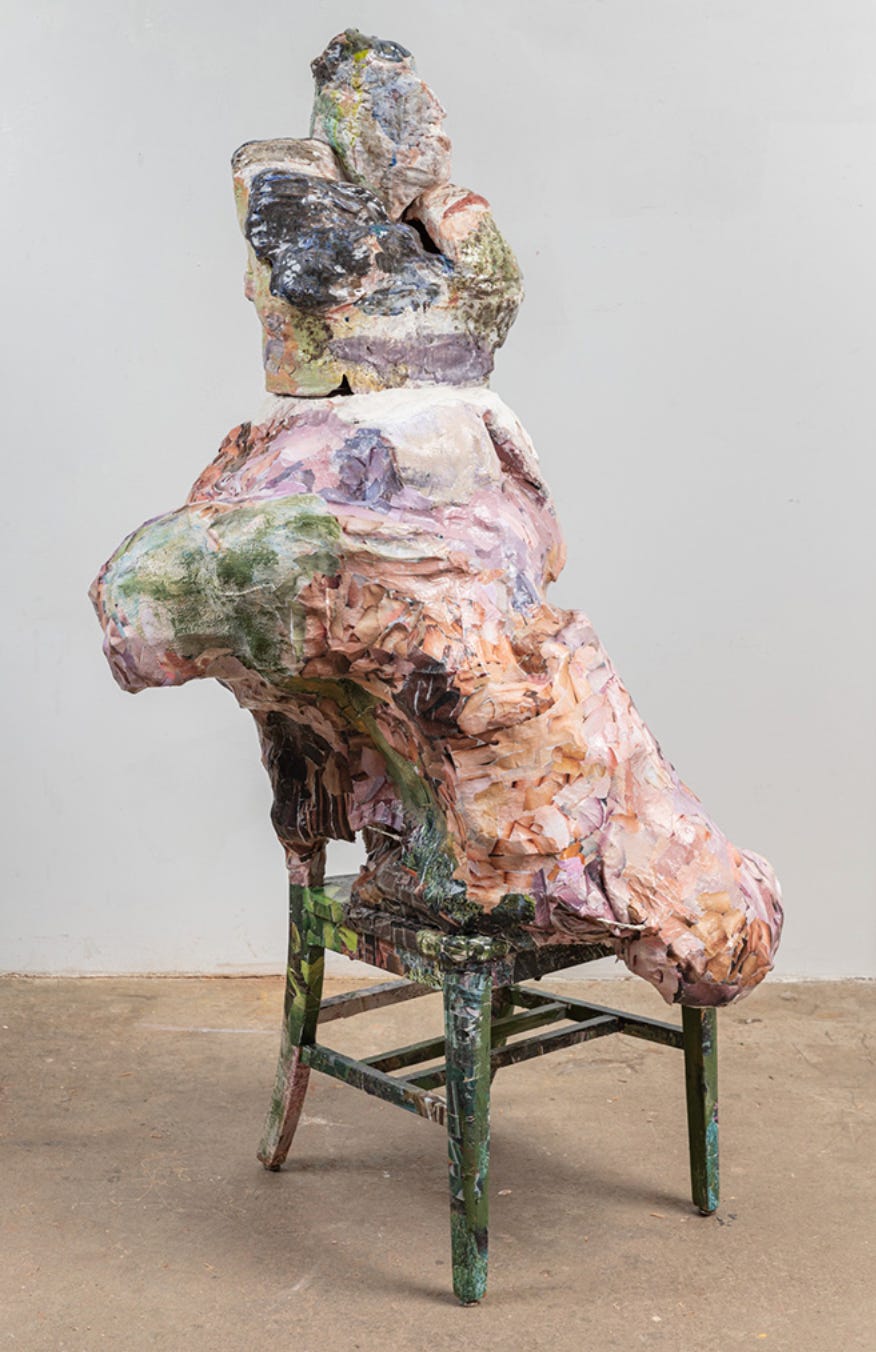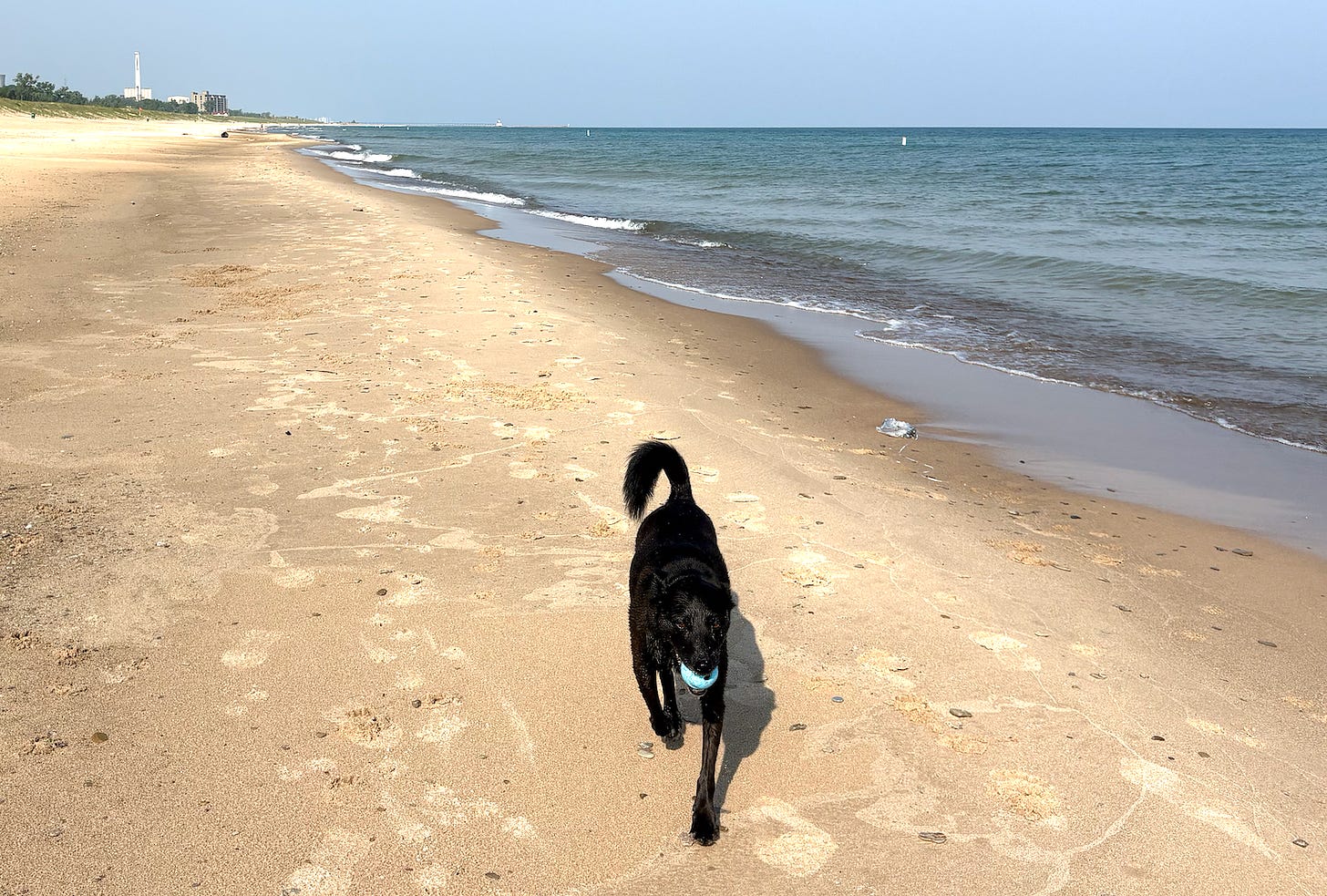Greetings, writers—
Last week I asked one of my very favorite people what word she’d use to describe herself if she could pick only one. We were in Wicker Park late at night, throwing a ball for her tireless dog, and she answered without hesitation: “curious.” Curiosity was the driving force in her life and her art, she said (I’m paraphrasing), and I knew instantly that she’d found her perfect word and also that I was jealous. (The word that swam up first for me was “attentive.” How dutiful and gentle and boring that sounds!)
My friend, who’s a brilliant artist, embraces inquiry and uncertainty. “Jessica Jackson Hutchins wants art to be an event, not a product,” says BOMB Magazine. “In every material—from clay and found objects to fused glass and decommissioned bus shelters—she prioritizes curiosity and intuition over knowable outcomes.”
Prioritizing curiosity and intuition is exactly what we ought to do in writing, especially in our early drafts.
This is hard for me, though! I’m impatient, for one thing; for another, years of writing to deadlines trained me to focus to product rather than process. When I’m working on one of my own projects, it often feels like the best part of writing is being done with it. I know I’m not alone here—“I hate to write, but I love having written” is erroneously attributed to Dorothy Parker, but some version of this sentence has been attributed to all sorts of folks—but that doesn’t mean it’s a great place to be.
“I’ve come to consider novel writing my preferred form of inquiry, a mode of exploring not just my place in the world but also history, science, ethics, and other areas of thought,” says Matt Bell over at No Failure, Only Practice. And that’s really the way we (I!) ought to look at it. Writing should be about discovery, not certainty, and about questions rather than conclusions.
“Write toward vulnerability,” urges Anne Lamott in Bird by Bird. “When you’re writing, you’re trying to find out something which you don’t know,” says James Baldwin in The Paris Review. “Anyone who writes is a seeker. You look at a blank page and you're seeking. That role is assigned to us and never removed,” says Louise Gluck in the same publication.
“My favorite English phrase is ‘on the other hand’,” writes George Saunders. “Fiction does a lot of that. It ‘on-the-other-hand’s us into a state of confusion and uncertainty that is very holy and very hard to achieve or sustain.”
Do I need to quote a baffling, occasionally funny but totally demented movie to drive my point home? No, but I’m going to, because maybe it will salvage the experience of watching Friendship last night, as I cringed against my elder daughter, who kept whispering—with very good cheer, actually—“I hate this.”
“Stay curious,” urges suburban dad-gone-nuts Craig Waterman, played by Tim Robinson. In this lone instance, what he says makes a lot of sense.
Today, think about things that you’re really curious about. Either pick one and freewrite about it (questions, uncertainties, hunches), or write 500 words of curiosity and intuition.
Happy unknowing—
Emily






